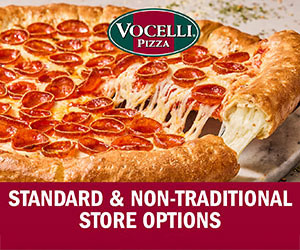What Is the Relationship Economy? Building Connections That Last With Your Customers

Of all the many skills we can develop there is one when mastered, that will, without question, have the biggest impact on us both personally and professionally. That skill is the ability to build an instant connection with others.
This is way more than a mere communication skill. It is the ability to communicate with a purpose, to build your community at every stage of your life. Building a relationship with someone else -- an acquaintance, friend, customer, co-worker, or total stranger -- is far and away the most important skill every human being should be taught at an early age and then hone throughout their life. This skill should be taught at home, in school from pre-kindergarten to graduate school, and, of course, in business. Unfortunately, it is rarely taught in any formal way.
The lost art of building rapport
Today we are living in the "digital disruption era." Technology has provided us with unprecedented advances, information, knowledge, access, and entertainment. We have computers, mobile phones, tablets, the Internet, social media, apps, and artificial intelligence -- assistants like Siri and Alexa, chatbots, virtual concierges, facial recognition, and self-driving cars.
As convenient as these advances can make our lives, they also have changed the way we communicate, behave, and think and have led to a dramatic decline in our people skills. As a society, we are now "relationship disadvantaged." We no longer become curious about others or eager to engage in conversations. The younger generation primarily communicates electronically, and the explosion of e-commerce means we go out less and less. In business, multi-channel communication has dramatically reduced phone calls to companies; customers can get answers and place orders by email, on websites, or through social media channels.
The pendulum has swung over to high tech and low touch. Consequently, we long for a sense of community, belonging, and purpose; a world in which people actually know our name, what we do, what is important to us, and have trust in one another. Today trust is an endangered value. Those who understand that human touch is the most important part of any experience -- especially a great customer experience -- will flourish. Personally and professionally, success is increasingly about creating and building human connections.
Relationships: more vital than ever
Understand this: there is an Uber coming to every industry. Uber is part of the digital disruption that completely turned the taxi and limousine industries upside down. You can track similar developments in other realms. Amazon has disrupted nearly all retail businesses -- grocery stores, health insurance, banks, home security, entertainment, pharmacies, and shipping -- and continues to expand into other fields. Airbnb has disrupted the hotel industry. Netflix wiped out video rental stores.
No business is safe. In the past, cutting-edge innovation had a much longer shelf life in overcoming competition. Now, however, many of your competitors can replicate your innovations and quickly reduce any temporary advantage you had in the market. The answer cannot just be about technology, either. To be sure, technological advances are critical to every business staying relevant. However, technology by itself is not a differentiator. The more you place technology between your company and the customer, the more you remove the human experience.
People crave human interaction. Customers desire recognition and a personalized experience; technology can never be empathetic or build relationships. In short, technology cannot provide genuine hospitality. It cannot express empathy, make people feel cared for, express emotions and vulnerability in a relatable way, or make people smile and laugh.
For anyone and any business to thrive in the future, they will have to master the art of relationship building.
What is the Relationship Economy?
In a Relationship Economy, the primary currency is made up of the connections and trust among customers, employees, and vendors who create significantly more value in what we sell. These relationships and connections help make price irrelevant.
The Relationship Economy is about building a culture that recognizes the importance of each individual and of making everyone a part of a community that is working toward something bigger -- a community that makes them feel cared for.
The Relationship Economy is how strongly you feel about the people and businesses in your life. Relationships are the biggest differentiator in customer and brand loyalty. Relationships are at the center of all we do.
You need to make your entire organization "relationship-centric" from the inside out. Customers don't recommend businesses they like; they recommend businesses they love. When you accomplish that, you make yourself and your brand competitor-proof and irreplaceable.
This is taken from my newest book The Relationship Economy: Building Stronger Customer Connections in the Digital Age, coming in October.
John R. DiJulius III, author of The Customer Service Revolution, is president of The DiJulius Group, a customer service consulting firm that works with companies including Starbucks, Chick-fil-A, Ritz-Carlton, Nestle, PwC, Lexus, and many more. Contact him at 216-839-1430 or [email protected].
Share this Feature
Recommended Reading:
| ADVERTISE | SPONSORED CONTENT |
FRANCHISE TOPICS
- Multi-Unit Franchising
- Get Started in Franchising
- Franchise Growth
- Franchise Operations
- Open New Units
- Franchise Leadership
- Franchise Marketing
- Technology
- Franchise Law
- Franchise Awards
- Franchise Rankings
- Franchise Trends
- Franchise Development
- Featured Franchise Stories
| ADVERTISE | SPONSORED CONTENT |








 The franchise listed above are not related to or endorsed by Franchise Update or Franchise Update Media Group. We are not engaged in, supporting, or endorsing any specific franchise, business opportunity, company or individual. No statement in this site is to be construed as a recommendation. We encourage prospective franchise buyers to perform extensive due diligence when considering a franchise opportunity.
The franchise listed above are not related to or endorsed by Franchise Update or Franchise Update Media Group. We are not engaged in, supporting, or endorsing any specific franchise, business opportunity, company or individual. No statement in this site is to be construed as a recommendation. We encourage prospective franchise buyers to perform extensive due diligence when considering a franchise opportunity.